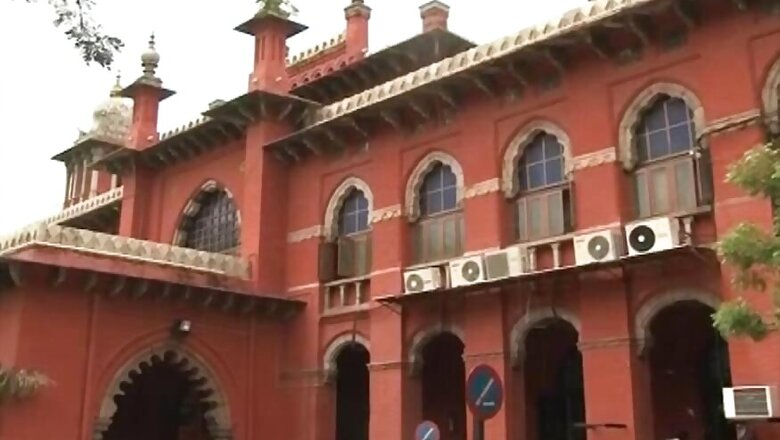
views
Chennai: The Madras High Court on Friday came down heavily on banks for adopting different yardsticks to grant loans to billionaire businessmen and the affluent, who are given credit without adequate collateral security, and for the middle class and poor.
"Though the banks would sanction loans and Letters of Understanding to billionaire businessmen and affluent even without sufficient collateral security and would take action for recovery only when the scam spins out of control, they are adopting a totally different yardstick in the case of middle income group and poor people across India," the court said.
The division bench comprising justices K K Sasidharan and P Velmurugan stated this while dismissing an appeal by IOB against the order of a single judge which had asked the bank to consider an education loan application of a girl belonging to a backward community in Tamil Nadu.
The court slapped a Rs 25,000 fine on the bank for refusing to sanction an education loan to the daughter of a poor farmer.
The judges observed that banks are not concerned with the directives issued by the central government and Reserve Bank of India to help poor students by giving them education loan. "Such instructions are violated by banks with impunity," the .
It said the present case was a classic example of how IOB made the girl, belonging to a most backward community in Tamil Nadu, run from pillar to post without considering her application for Rs 3.45 lakh education loan.
"The bank by filing the intra court appeal against the order of a single judge on November 30, 2012, succeeded in dragging the matter till completion of the course so as to make the matter infructuous. The Himalayan arrears in courts and inability of the system to prioritise cases also contributed for the delay and denial of justice to the poor student," the bench said.
The matter relates to a loan application by the student who joined engineering course in a private college during the 2011-12 academic year.
As she was not in a position to pay the fees, she applied for a education loan. Since IOB did not consider it, she moved the high court. A single judge directed the bank to reconsider it, based on the bonafide certificate issued by the college.
However, assailing the order, the bank moved the present appeal.
The counsel for the bank contended that the applicant completed her course in 2015 and as such, the prayer in her petition has become infructuous.
Recording the submission, the bench said the banks have no case that education loan defaulters have contributed for the accumulation of the bad loans.
"We are informed that the cumulative total of more than 50 companies or groups, each with over Rs 250 crore of loan arrears, classified as willful default, works out to about Rs 48,000 crore," the bench said.
Noting that banks are reluctant to sanction education loan in the absence of sufficient collateral security, the court said education is not considered an 'asset' by banks.
The country would be denied of the service of scientists, doctors, engineers and other professionals in case financial assistance is not given to deserving students to come up in life, the bench said.
The educated youth are an asset to the nation and their talents can be utilised for the growth of the country. Banks must realise this fundamental fact, the judges said.
Holding that IOB's appeal was nothing but an abuse of the process of court, the bench dismissed its plea and imposed Rs 25,000 as costs, payable to the applicant within two weeks.




















Comments
0 comment